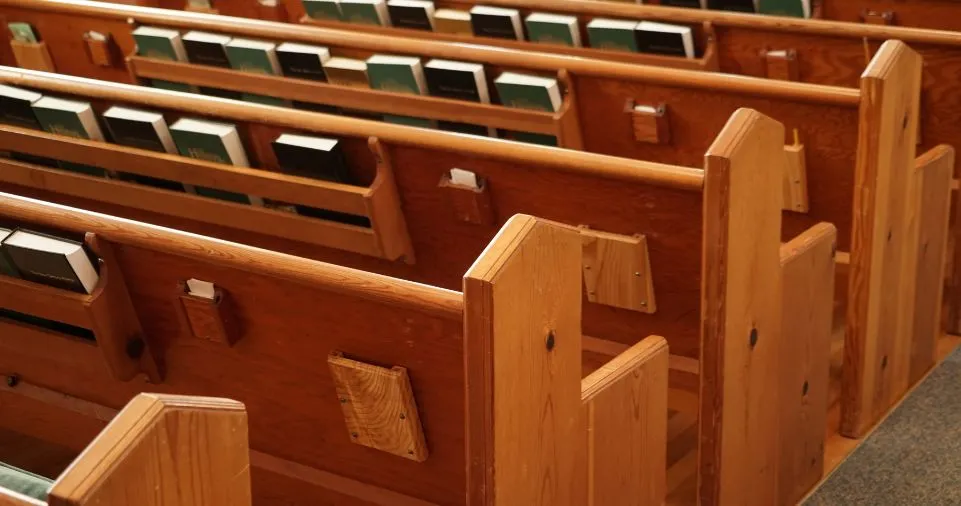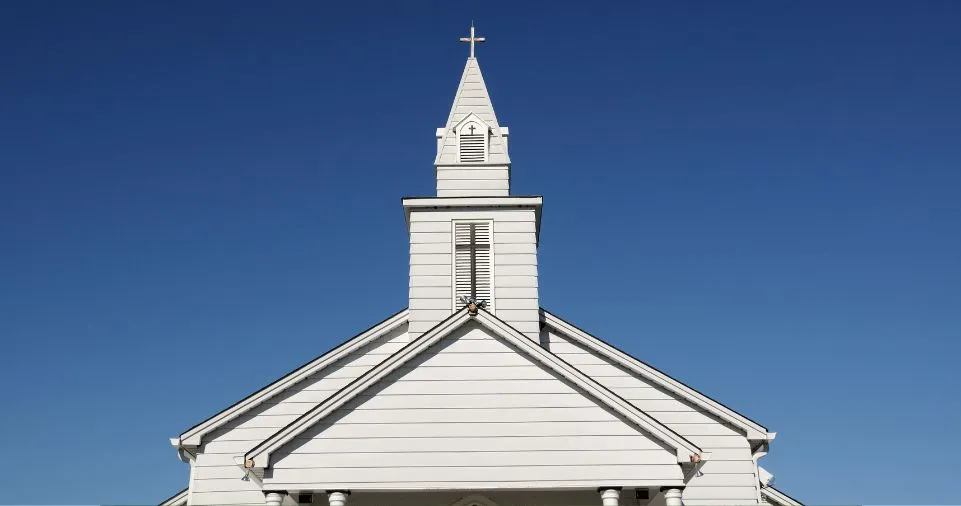The Church of the Highlands, a prominent megachurch based in Birmingham, Alabama, has emerged as one of the most influential religious institutions in the American South.
Founded in 2001 by Pastor Chris Hodges, the church has grown rapidly, boasting over 50,000 weekly attendees across 22 campuses.
Its mission is to help people focus on biblical teachings, contemporary worship, small groups, and outreach programs.
Despite its success, the church has faced significant controversies, including issues related to leadership, financial transparency, and racial sensitivity.
The Lodge: Purpose and Misunderstandings
In a recent initiative, Pastor Chris Hodges opened The Lodge, a retreat center located on the church’s Irondale campus, aimed at supporting pastors suffering from burnout.
The center offers a sanctuary for ministers to “rest, worship, and grow” without the burdens of their regular pastoral duties.
However, speculation arose that The Lodge might serve as a haven for clergy accused of sexual misconduct.
Pastor Hodges firmly denied this, clarifying that the center’s purpose is to assist pastors dealing with burnout, not those facing allegations of moral failings.
In interviews with AL.com, Pastor Hodges emphasized that The Lodge is dedicated to aiding pastors contemplating leaving their ministries due to burnout, particularly intensified by the pandemic.
He recounted phone conversations with about 20 pastors experiencing such challenges, none of whom were accused of sexual misconduct.
Hodges envisions The Lodge as a place where pastors and their spouses can rejuvenate and prevent burnout, thereby sustaining their well-being and effectiveness in ministry.
Addressing Moral Failures
Historically, the Church of the Highlands has been involved in pastoral restoration, addressing moral failures on a case-by-case basis.
Pastor Hodges noted that each situation requires a unique approach and emphasized that The Lodge is not designed for such restoration efforts.

Confusion arose due to the coincidental timing of The Lodge’s announcement and the case of former pastor Micahn Carter, who was accused of sexual misconduct.
Although the church initially assisted Carter, they severed ties upon learning of the allegations.
Hodges expressed regret for allowing Carter to preach before the accusations were public and stated that the church would not engage in future cases involving sexual misconduct.
Controversies and Criticisms
Beyond the issues surrounding The Lodge, the Church of the Highlands and Pastor Hodges have faced broader controversies. The most recent involved Hodges’ engagement with racially insensitive social media posts, which led the city of Birmingham to terminate partnerships with the church. Despite Hodges’ public apologies and assertions of his commitment to community service, the incident ignited debate and criticism from various groups.
Other controversies include:
- Financial Transparency: Questions have been raised about the church’s financial practices, particularly regarding Pastor Hodges’ substantial compensation and the church’s overall charitable contributions. Critics argue that the church allocates resources disproportionately towards infrastructure and expansion rather than community service.
- Leadership Style: Some former members and staff have described the church’s environment as “cult-like,” citing expectations of unwavering loyalty and obedience to leadership.
- Handling of Misconduct: The church has faced criticism for its handling of misconduct allegations, such as allowing staff members accused of misconduct to resign without further investigation.
- COVID-19 Response: During the COVID-19 pandemic, Pastor Hodges defied health restrictions by holding services at full capacity, claiming religious exemptions. This decision drew widespread criticism for jeopardizing public health.
- Association with Controversial Figures: The church has promoted and partnered with Christian financial guru Dave Ramsey, who has faced criticism for his teachings on tithing and debt management. Some view the church’s association with Ramsey as problematic.
- Expansion Challenges: The church’s expansion efforts, such as plans to open a campus in Huntsville, Alabama, have faced opposition from local residents and businesses concerned about the impact on their community.
- Counseling Program Concerns: Critics have pointed out that the church’s biblical counseling program is not licensed and lacks clinically trained therapists, potentially leading to harmful outcomes.
The Church’s Future and Response to Challenges
Despite these controversies, the Church of the Highlands continues to wield significant influence in the region.
The church’s youthful and vibrant congregation remains devoted, and its community outreach efforts persist. However, the church is at a critical juncture as it navigates the repercussions of its controversies and strives to rebuild trust with the community.
The church’s response to these challenges will be pivotal in determining its future trajectory.
Pastor Hodges has expressed a commitment to transparency and accountability, emphasizing the church’s dedication to fostering a supportive environment for its members and leaders.
As the church seeks to address its internal issues and enhance its public image, it must also confront broader societal concerns about race, politics, and social justice.
Also Read:
Conclusion:
The Church of the Highlands stands at a pivotal crossroads. While it has achieved remarkable growth and influence, the challenges it faces require thoughtful reflection and decisive action.
The church’s ability to address its controversies and uphold its mission will play a vital role in shaping its legacy and impact on the community.






